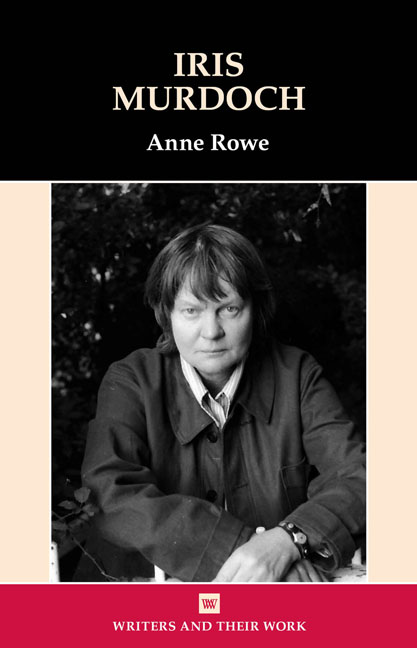Book contents
- Frontmatter
- Dedication
- Contents
- Acknowledgements
- Biographical Outline
- Abbreviations
- Introduction: Iris Murdoch (1919–1999)
- 1 A Writing Life: 1954–1995
- 2 Writing the Novel of Ideas: The Philosopher and Public Intellectual
- 3 Writing Sacraments: The Holy Atheist
- 4 Writing ‘A New Vocabulary of Experience’
- 5 Writing the Landscape: The Island of Spells and the Sacred City
- Afterword: ‘Onward!’
- Notes
- Select Bibliography
- Index
Afterword: ‘Onward!’
- Frontmatter
- Dedication
- Contents
- Acknowledgements
- Biographical Outline
- Abbreviations
- Introduction: Iris Murdoch (1919–1999)
- 1 A Writing Life: 1954–1995
- 2 Writing the Novel of Ideas: The Philosopher and Public Intellectual
- 3 Writing Sacraments: The Holy Atheist
- 4 Writing ‘A New Vocabulary of Experience’
- 5 Writing the Landscape: The Island of Spells and the Sacred City
- Afterword: ‘Onward!’
- Notes
- Select Bibliography
- Index
Summary
Stuck in a century with which they feel out of step, Murdoch’s characters often yearn for the kind of liberal reconfiguring of gender stereotypes and personal relationships that are now features of the early the twenty-first century. Gertrude Reede in Nuns and Soldiers longs for a future where love defies societal boundaries and asks, ‘why should love be classified and constrained and denied and destroyed all the time, people can love each other honestly and truthfully in all sorts of situations and all sorts of ways’ (NS 464). The needs of other characters searching for solutions to emotional, religious and philosophical questions are also echoed in contemporary social and political campaigns: for the legitimacy for those marginalized by gender confusion; for the open acknowledgement of mental health issues; for justice for women abused by coercive and charismatic men, and for urgent strategies to defuse religious extremism. Such issues can, at first glance, seem peculiar to the years since the millennium, yet for forty years they featured presciently within the pages of Iris Murdoch's capacious novels, securing her place in the ranks of acclaimed British writers.
After her death in 1999, when fellow writers assessed Murdoch's place in the English canon, Lorna Sage thought it secure because her high seriousness and enormous range bridged the gulf between audiences for best-sellers and the literary novel. John Updike, pointing also to her universality, suggested that the questions that Murdoch grappled with were those upon which the interest of all fiction depends, while A.N. Wilson thought she spoke in particular to a generation trying to discover its moral sense after the war. Either way, the focus on moral awareness that comes out of her enduring commitment to the realist tradition distinguishes her work as a crucial link in the evolutionary chain of the novel that stretches back to the nineteenth century, while her experimentation with the novel form projects it forward to the twenty-first. Her idiosyncratic style was hailed as an inspiration to many writers who came after her, amongst them Monica Ali, John Banville, Sebastian Faulks and Zadie Smith, and more recently – by means of her large Twitter following – the list has expanded to include, amongst others, Aminatta Forma, Sophie Hannah and Sarah Waters. Yet, competing convictions of self-worth and self-doubt were always stealthy presences in Murdoch's oeuvre, echoed in the voices of those fictional writers who appear there.
- Type
- Chapter
- Information
- Iris Murdoch , pp. 113 - 119Publisher: Liverpool University PressPrint publication year: 2019

